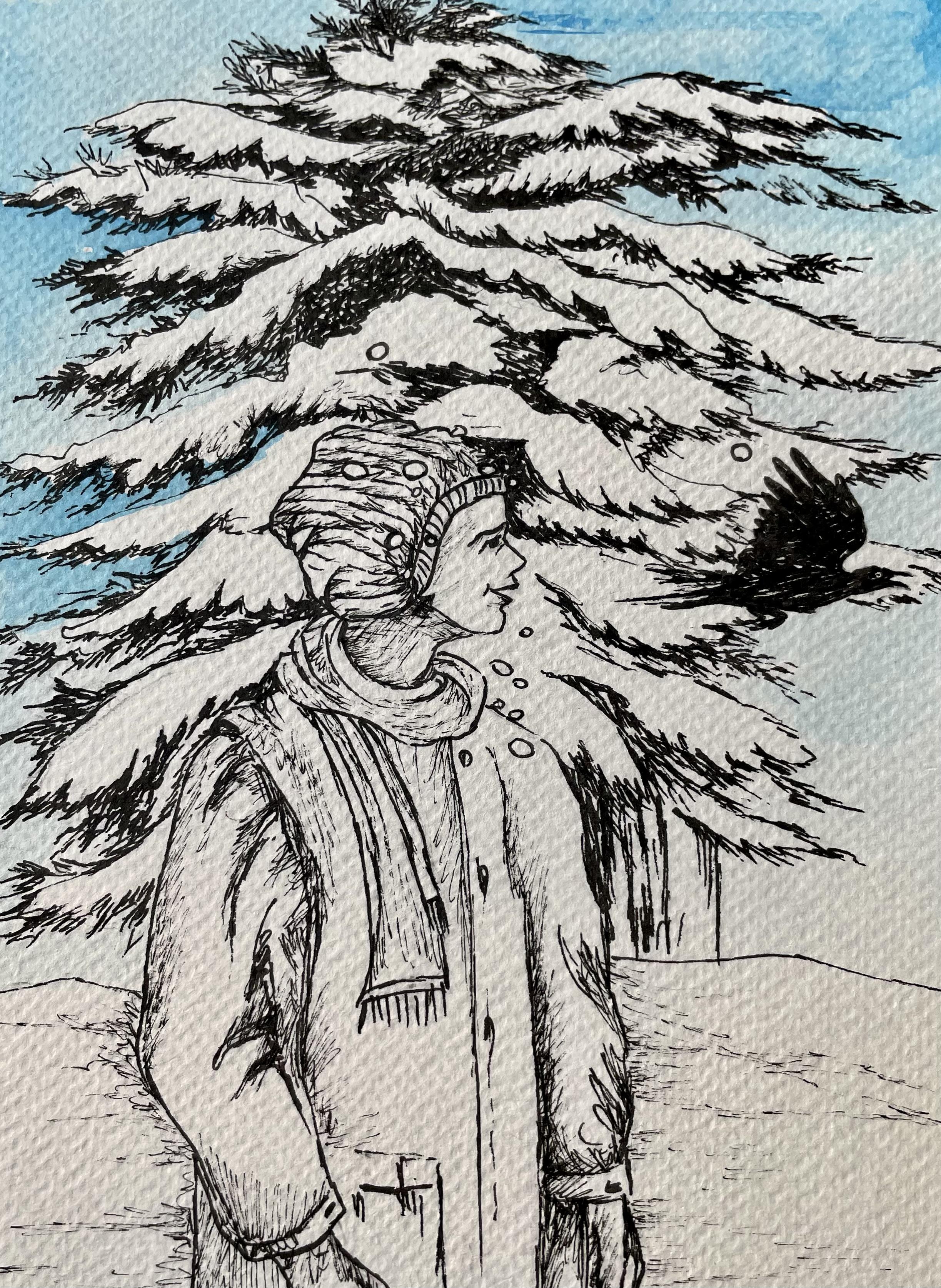Gratefulness Happens Before Thinking

IMAGE OF THE WEEK
We are grateful to Rupali Bhuva for offering this hand-made painting for this reading.

My vision of the world? My hope for the future? This topic sounds a bit big. Allow me to start small — say, with crows. They are my special friends. Just as I am writing these lines, one of them, the shy one among my three regular guests, is gobbling up the Kitty Fritters I put out for them. This brings to mind a short poem by Robert Frost that might provide a stepping-stone for our deliberations about world-vision and hope for the future — if any.
The way a crow
Shook down on me
The dust of snow
From a hemlock tree
Has given my heart
A change of mood
And saved some part
Of a day I had rued.
Surely you will remember a similar experience of your own: some quirky little incident made you smile, changed your mood, and suddenly the world looked brighter. If this ever happened to you, the key for understanding a causal chain of great consequence is in your hand: any change in attitude changes the way one sees the world, and this in turn changes the way one acts. When Robert Frost claims that the crow’s little trick “saved” part of a day he had rued, or of which he repented, he means this in the full sense of a redeeming change of heart. When he got home, I’m sure he greeted Mrs. Frost in a better mood than he would have been able to do without the crow’s nudge. And there is no telling what this did to her — and to the way she treated the dog afterwards, or talked more kindly to her neighbor.
But what exactly triggered this fortunate chain reaction? What gave Frost’s heart “a change of mood”? Put yourself in his shoes as he is slouching moodily through the woods. Then feel that sudden dusting with snow. Doesn’t it wake you up from your brooding? An interruption like this could make you angry if you insisted on staying preoccupied with your problems.
But — surprise — the cold spray makes you snap out of being wrapped in yourself, and you face the given: a hemlock tree, a crow, melting snow in your neck. Bingo! A saving change of mood. What caused this change was gratefulness.
Gratefulness? I hear a chorus of disbelief. Admittedly, Frost didn’t feel like thanking the crow. But gratefulness is more than giving thanks. Thanking comes with thinking. Gratefulness happens before thinking — in that brief gap between “the dust of snow” and thought. It is the spontaneous response of the human heart to the gratuitously given. This gratefulness releases energy. In the gap of surprise before the first thought, the powerful surge of an intelligence that far surpasses thought takes hold of us. We can make our thinking a tool of this creative intelligence that constantly brings forth and sustains the world. If we willingly open ourselves to its gentle force, it has power to change whatever is not in tune with it. Gratitude is thinking in tune with the cosmic intelligence that inspires us in grateful moments. It can change more than a mood; it can change a world.
Brother David Steindl Rast is a 96-year-old benedictine monk. Excerpt above from here.
SEED QUESTIONS FOR REFLECTION: What does gratefulness mean to you? Can you share a personal story of a time you were aware of feeling grateful before thinking? What helps you grow in gratefulness?